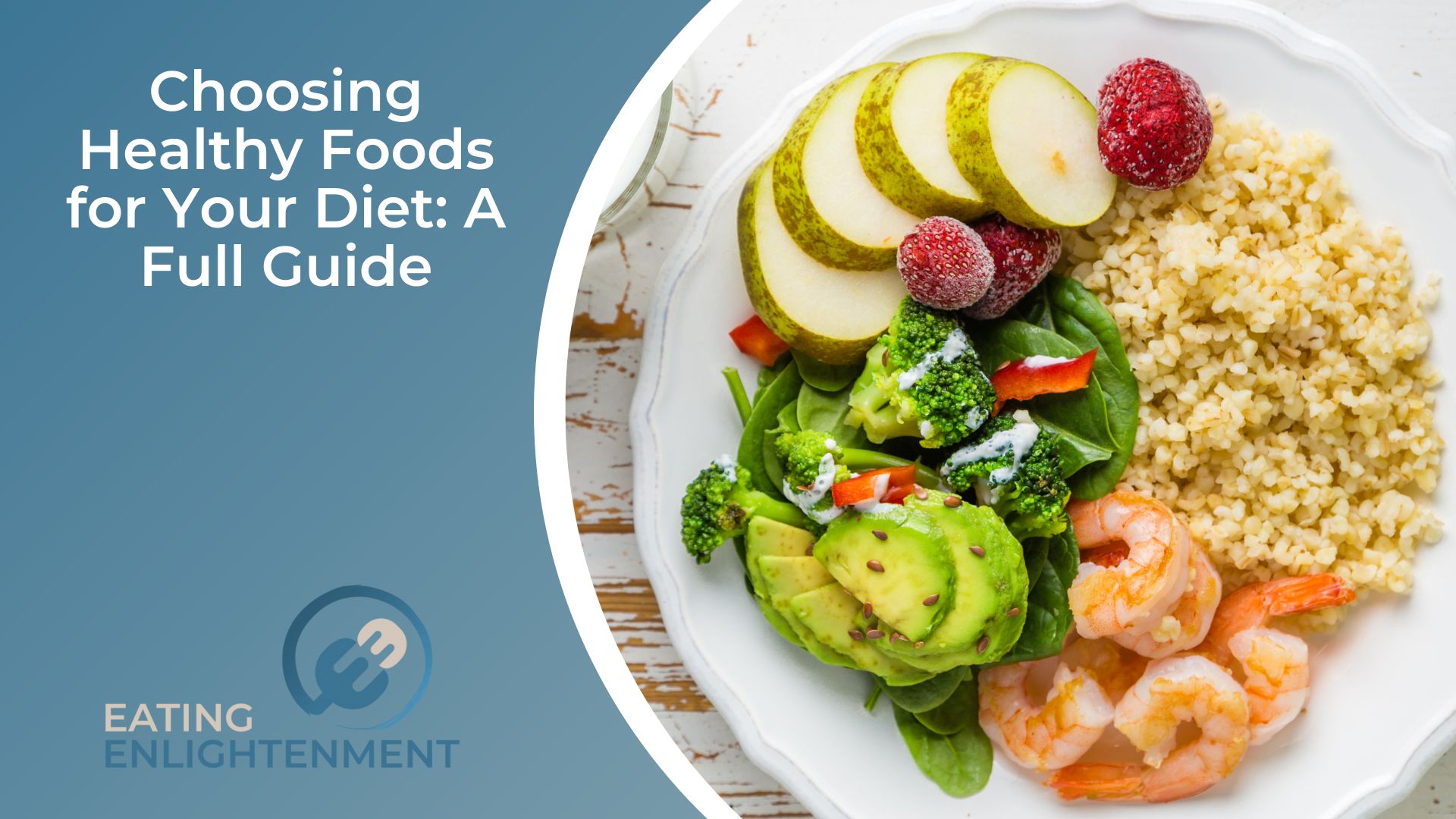Navigating the maze of nutritional advice to find healthy foods for your diet can feel overwhelming. From trendy diets flooding your social media feed to the latest superfood craze, how do you decide what’s genuinely good for your body?
This comprehensive guide is designed to cut through the noise, offering scientifically-backed advice and practical tips. Whether you’re looking to overhaul your eating habits or simply make more mindful choices, our guide to choosing healthy foods will set you on the path to a nutritious and balanced diet.

Best Things For Gut Health
Achieving optimal gut health is a critical aspect of maintaining overall wellness. Your gut not only plays a key role in digestion but also your immune system, mood, and even brain health. To support healthy gut flora, it is essential to incorporate probiotics and fermented foods into your diet. Some of the best options include kefir, kimchi, sauerkraut, and kombucha. These foods contain beneficial bacteria that help promote a diverse microbiome in your gut, which can lead to better digestive health and overall well-being.
Building a Balanced Plate
Creating a well-rounded and nutrient-dense meal involves more than just choosing healthy foods; it’s about balancing those foods in the right proportions. A balanced plate should include a variety of food groups, ensuring you receive a broad spectrum of nutrients your body needs to thrive. Half of your plate should consist of fruits and vegetables, selected for their vitamins, minerals, and fiber. One quarter should be dedicated to lean proteins, like fish, poultry, beans, or tofu, supporting muscle health and satiety.
The remaining quarter should contain whole grains or starchy vegetables, providing essential energy and supporting gut health. Don’t forget to include a source of healthy fats, such as olive oil or avocados, for their heart-health benefits. This simple but effective framework can guide your meal planning to promote overall health and well-being.
Whole Grains
Incorporating whole grains into your diet is a key factor in maintaining a healthy lifestyle. Whole grains, as opposed to refined grains, retain all parts of the grain kernel, including the bran, germ, and endosperm, making them a powerhouse of nutrients. They offer a significant source of fiber, which aids in digestion and can help prevent heart disease, diabetes, and other health conditions.
Additionally, whole grains are rich in essential vitamins and minerals, such as B vitamins, iron, and magnesium. Brown rice, quinoa, oats, barley, and whole wheat are a few types of whole grains. By choosing whole grains over refined grain products, you can enhance the nutritional value of your meals and enjoy numerous health benefits.

Lean Proteins
Incorporating lean proteins into your diet is crucial for muscle repair, growth, and overall bodily functions. Lean proteins offer the essential amino acids your body needs without the excess saturated fat found in fattier cuts of meat. Opting for sources like poultry (chicken or turkey), and fish, especially those high in omega-3 fatty acids like salmon and mackerel, lentils, beans, tofu, and low-fat dairy products can provide these vital nutrients efficiently.
Not only do these foods help in building and maintaining muscle mass, but they also play a role in feeling fuller longer, aiding in weight management. When selecting meats, choosing skinless options or removing the skin before consumption can reduce fat intake, making your protein choices even leaner.
In conclusion, choosing healthy foods for your diet is about finding a balance between diverse and nutrient-dense options. Incorporating probiotics, whole grains, and lean proteins into your meals can provide numerous health benefits, from improved gut health to maintaining muscle mass.
Remember to prioritize moderation and variety in your food choices, and consult with a healthcare professional if you have any dietary restrictions or concerns. With these tips in mind, you can confidently navigate the world of nutrition and make choices that support your overall health and well-being.



